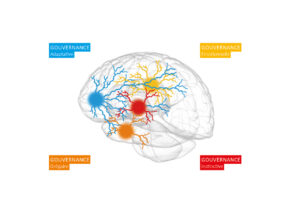Emotional Intelligence at Work: Key to Professional Success
Table of contents
In today's professional world, emotional intelligence (EI) has become an essential skill. Beyond technical qualifications, it's the ability to manage one's emotions and understand those of others that often distinguishes the most successful employees and leaders. This article explores the importance of emotional intelligence in the workplace and how it can transform interactions, decision-making and leadership.
What is Emotional Intelligence?
Emotional intelligence, a concept popularized by psychologist Daniel Goleman, refers to the ability to identify, understand, manage and use one's emotions positively to communicate effectively, overcome challenges, manage stress, empathize with others and defuse conflict. It is broken down into several key components: self-awareness, self-control, intrinsic motivation, empathy and social skills.

Self-Awareness: The Foundation of EI
Self-awareness is the cornerstone of EI. It involves understanding one's own emotions, strengths, weaknesses, values and impact on others. At work, this translates into better stress management and an enhanced ability to adapt to change or criticism. Personalized coaching can help you better manage this concept.
Self-Control: Managing Emotions for Better Performance
Self-control is the ability to control one's impulses and emotions. It enables us to react in a thoughtful, measured way to stressful or conflictual situations. In a professional environment, this manifests itself in better time management, increased resilience and the ability to remain calm and focused under pressure.
Intrinsic Motivation: The Engine of Success
Intrinsic motivation, a crucial aspect of EI, refers to the pursuit of goals for internal rather than external reasons. It is associated with deeper commitment, greater job satisfaction and better performance. Intrinsically motivated employees are often more creative, more productive and more loyal to their company.
Empathy: Understanding for Better Collaboration
Empathy, the ability to understand and share the feelings of others, is essential in the workplace. It fosters collaboration, improves communication and helps build strong working relationships. Empathetic leaders are able to detect the needs of their teams and act accordingly, which can improve morale and productivity.
IE and Leadership
In the context of leadership, EI is particularly valuable. A leader with strong emotional intelligence can inspire and motivate his or her team, manage conflict effectively, and create a positive and productive work environment. Such leaders are often perceived as more approachable and trustworthy, which boosts employee loyalty and commitment.
Developing Emotional Intelligence
Fortunately, unlike IQ, EI can be developed over time. It starts with an honest self-assessment, followed by a commitment to work on specific areas, such as managing emotions, active listening or empathetic communication. Training, workshops and coaching can also help develop these skills.
Our other articles
Many an educated man is unaware that the only way to change an idea is to change an action.
Let's get to know each other better






